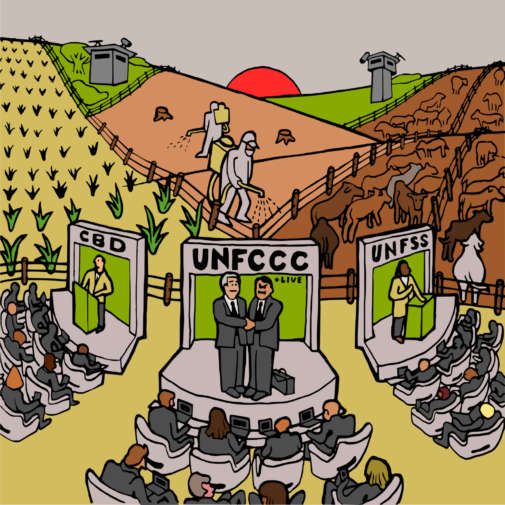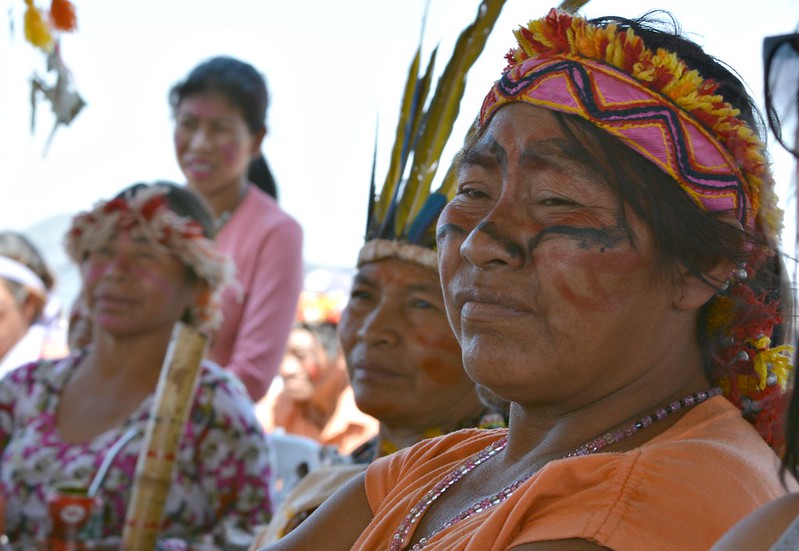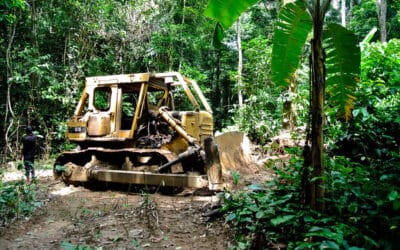By Philip Seufert, FIAN International
(This article is based on discussions during a virtual CSO webinar hosted by FIAN International in May 2022)
The next few months will show if the world’s leaders are willing to agree on a Global Biodiversity Framework containing bold steps to ensure a sustainable and just future for humanity and all life on Earth. As Parties to the Convention on Biological Diversity (CBD) and other actors meet in Nairobi for what could be the decisive round of negotiations, it is worth asking who actually influences the decisions made in the CBD – is it governments, rights holders or business?

When attending recent CBD meetings, one could not help but notice the large number of corporate and business-related actors. Whereas some may say that the colossal task of halting and reversing biodiversity loss requires involving all actors, we should also be very cautious of the implications.
In 2015-16, civil society researchers made public the “Gene Drive Files” available at http://genedrivefiles.synbiowatch.org. These documents showed how corporate and philanthropic actors had spent millions of dollars to influence CBD decisions on the use of this new and dangerous technology. This caused a scandal at the time and prompted the CBD to put in place rules on conflict of interest.
Methods included placing pro-technology scientists in CBD expert groups, organizing events to advertise the supposed benefits of gene drives and financing delegates’ participation in CBD meetings. Public-private partnerships, private funding, aggressive lobbying and the production and dissemination of questionable ‘scientific’ evidence (‘junk science’) are other methods applied to undermine democratic processes. Another important way of influencing decisions is to coin concepts and frame discussion in a business-friendly way. In the context of the GBF negotiations, ‘Nature-based solutions’ is one of the buzz phrases which has an appealing ring to it, but is based on a vague definition, scientifically questionable claims about the mitigation potential of ecosystems, weak safeguards and is geared mainly to offsetting schemes, which cynically link biodiversity protection directly to extraction. As such, NBS risks becoming a license for business as usual.
Corporations and their operations are important contributors to biodiversity loss and ecosystem destruction. They are also accountable to their shareholders to whom they pay dividends. This is very different from the responsibility of States to uphold human rights and the public interest. Prioritizing the needs of Indigenous Peoples and local communities as rights holders must be the guiding star of this week’s negotiations.
This article was originally published on June 19 on ECO 2022.




